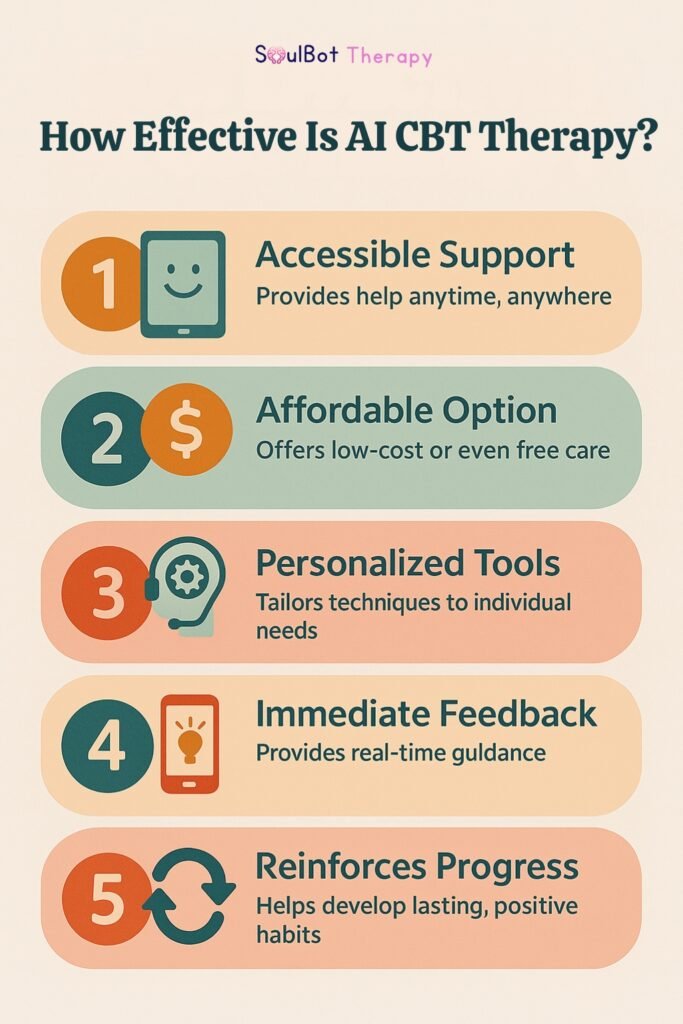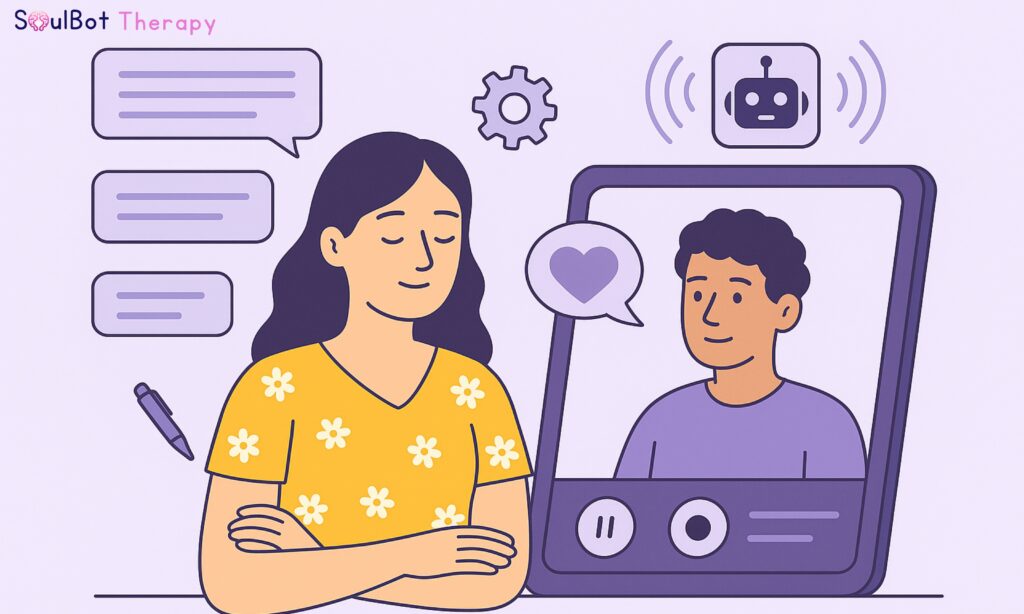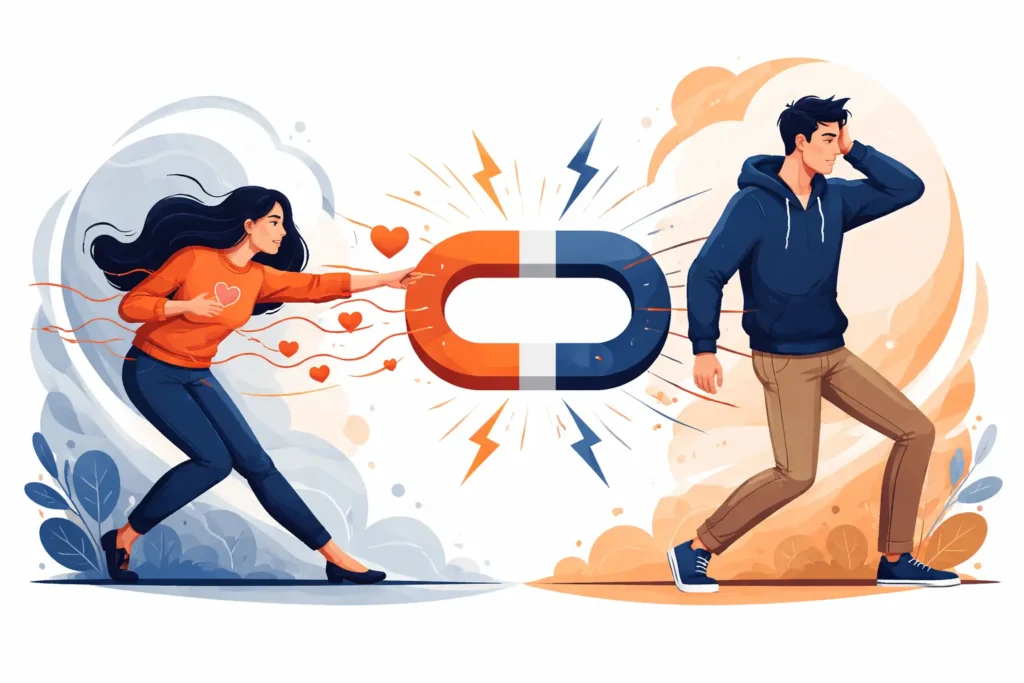AI CBT therapy is quickly becoming one of the most talked-about shifts in modern mental health care for good reason. With rising demand and limited access to therapists, people are turning to digital solutions that promise something radical: personalized, round-the-clock support. But can a machine help you heal your mind?
🧠Let’s break it down.
Why CBT Still Works And Why It’s Getting an AI Upgrade?
Cognitive Behavioral Therapy (CBT) is the gold standard for treating anxiety, depression, stress, and even trauma-related issues. It’s structured, short-term, and research-backed. But it’s not always accessible. Long waitlists, high costs, or the mental load of showing up in person stop many from getting help.
Enter AI CBT therapy. Think of it as traditional CBT with a tech-powered twist. Using machine learning, digital CBT tools can now analyze patterns in your thoughts, moods, and behaviors and offer support tailored just for you.
Digital CBT Tools That Adapt to You
Unlike old-school self-help apps that push daily affirmations, today’s cognitive behavioral therapy apps are far more innovative. They adapt to your emotional data in real time. You might chat with a CBT chatbot that helps you reframe a negative thought or recommend specific coping strategies based on your recent patterns.
The key shift? Personalized mental health care. AI isn’t just giving generic advice; it’s learning from you.
“Healing doesn’t mean the damage never existed. It means the damage no longer controls your life.”
– Akshay Dubey.

AI Mental Health Support: Benefits That Matter
Here’s what makes AI mental health support worth exploring:
- 24/7 availability: No more waiting for your therapist to reply.
- Zero judgment: Say exactly what you’re feeling; no filter is needed.
- Pattern detection: AI tracks recurring emotional states and triggers.
- Progress tracking: Visualize your growth, setbacks, and patterns over time.
This support can be a lifeline for anyone dealing with daily stressors or stuck in repetitive thought loops.
📊SoulFact: A 2023 report from the World Economic Forum emphasized the growing role of AI-based emotional care in making mental health support more accessible globally.
How Effective Is AI CBT Therapy?
You’re not wrong to ask if this works.
According to a NIH review on digital CBT, AI-based therapy tools have shown comparable outcomes to face-to-face CBT in treating mild to moderate anxiety and depression. The World Economic Forum even listed AI-driven emotional care as a critical global mental health innovation frontier.
🧠But here’s the thing: AI is most effective when actively engaged. It’s a supplement, not a replacement.
When to Choose AI CBT Therapy Over Traditional Therapy
If you’re wondering whether to see a therapist or try an app, consider this:
- Try AI CBT therapy if you:
- Want support between sessions
- Struggle with scheduling or costs
- Need help building emotional regulation habits daily
- Stick to traditional treatment if you:
- Have severe or complex symptoms
- Need trauma-informed care
- Prefer human connection in healing
It doesn’t have to be either/or. Many people are now combining both.
What are the CBT Chatbot Benefits?
A CBT chatbot can walk you through reframing exercises, suggest mindfulness techniques, or even help with sleep hygiene. It’s fast, private, and engaging.
🧠But here’s the honest part: it’s not a therapist. It won’t catch every nuance of your emotional state and might miss cultural or personal context. That’s where human therapists still shine.
📊SoulFact: A systematic review on digital CBT published by the NIH confirms that online CBT interventions show significant effectiveness in reducing symptoms of anxiety and depression.
Where SoulBot Comes In
🧘SoulBot is one of the few mental health AI solutions designed with a deeply human lens. It’s not about spitting out advice; it’s about building an emotional connection with users through mood tracking, tailored insights, and self-guided CBT exercises.
📍Ready to try AI therapy that feels personal? Try SoulBot's AI Assistant and start your CBT journey today.Final Thought
The future of therapy isn’t just digital, it’s deeply personalized. AI CBT therapy isn’t here to replace your therapist. It’s here to meet you where you are, when you need it, and guide you toward real progress. And that, honestly, is a future worth investing in.








